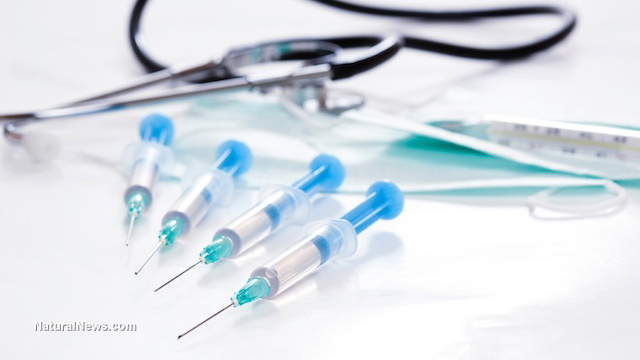
Dr. Steven Hotze, founder of Hotze Health & Wellness Center and a well-known podcaster, said during a recent episode of "Dr. Hotze's Wellness Revolution" that hypothyroidism is one of the major reasons why women have difficulties conceiving or completing a pregnancy.
This condition, also called underactive thyroid, happens when the thyroid gland doesn't make enough thyroid hormones to meet your body's needs. Nearly five out of 100 Americans aged 12 and above older have hypothyroidism, although most cases are mild or have few obvious symptoms.
"A major cause of poor ovarian function has to do with thyroid function and the thyroid hormones are what enable your cells to produce and use energy," Hotze said.
Good thyroid hormone levels in the cells activate the mitochondria and produce the energy that enables the body to function normally, including the way the heart beats. Without enough thyroid hormones, many of the body's functions slow down.
"So, if a woman doesn't have adequate amounts of natural thyroid hormone – the active thyroid hormone or T3 – her ovaries are not going to function well and that will lead to her inability to conceive or carry a baby to full term," Hotze explained.
According to the wellness expert, there are two things that can be done if you're having a problem with fertility and if the menstrual cycles are somewhat irregular, having premenstrual symptoms, mood swings, fluid retention, weight gain, headaches, or if your periods are becoming heavier, fixing the hormone imbalance starting on day 15, will add some natural progesterone to balance out the estrogen hormones and make a woman more likely to be able to conceive.
"And secondly, by using thyroid hormone, we increase the body's metabolism. So, the ovaries function in a normal fashion and produce the ovum and produce the amount of progesterone that's needed," he stated.
According to Hotze, fertility clinics should be called infertility clinics because 75 percent of the women who spend money amounting to $50 to $100,000 don't become pregnant. This is because doctors there are not addressing the underlying cause of infertility.
"And that underlying cause is commonly due to hypothyroidism, the low thyroid function intracellularly that doesn't show up on blood tests," he noted.
Hypothyroidism affects both mother and baby
According to Health News, mild or undiagnosed cases of hypothyroidism can worsen during pregnancy. Hashimoto's disease, an autoimmune condition that damages the thyroid gland, is the most common cause of hypothyroidism in pregnancy. (Related: Black seed found to treat Hashimoto’s disease, clinical trial reveals.)
When untreated during gestation, the said thyroid condition can cause preeclampsia, anemia and heart problems. Its symptoms can feel worse for pregnant mothers who are already bothered by things like fatigue or exhaustion, constipation, muscle cramps and difficulty focusing. These symptoms can also be felt by non-pregnant adults.
Also, healthy development of the baby's brain and nervous system needs thyroid hormone. During the first half of pregnancy, the baby needs thyroid hormones from the mother through the placenta. And about 20 weeks into pregnancy, the baby's thyroid will take over and make enough thyroid hormones.
"However, if left undetected and untreated, low thyroid hormone levels in the mother during the first trimester can negatively affect the baby's brain development. Maternal hypothyroidism can also cause miscarriage or stillbirth. Proper medical care and following healthcare providers' instructions can usually prevent these outcomes," the Health News article included.
Meanwhile, too much thyroid hormone or hyperthyroidism can also cause pre-eclampsia in pregnant mothers. They can also experience increased appetite, weight loss, fast heartbeat and palpitations, sleep problems, excessive sweating, vision problems and enlarged thyroid.
This condition can also have serious consequences, such as miscarriage or premature birth.
Check out WomensHealth.news for more stories related to infertility.
Watch the full episode of "Dr. Hotze's Wellness Revolution" with Dr. Steven Hotze below.
This video is from the Hotze Health channel on Brighteon.com.
More related stories:
Edible seaweed is packed with iodine for improved thyroid health.
Manage your underactive thyroid with these essential nutrients.
Some of the best natural methods to promote thyroid health.
Improve the health of your thyroid with ashwagandha.
Sources include:
Please contact us for more information.


















